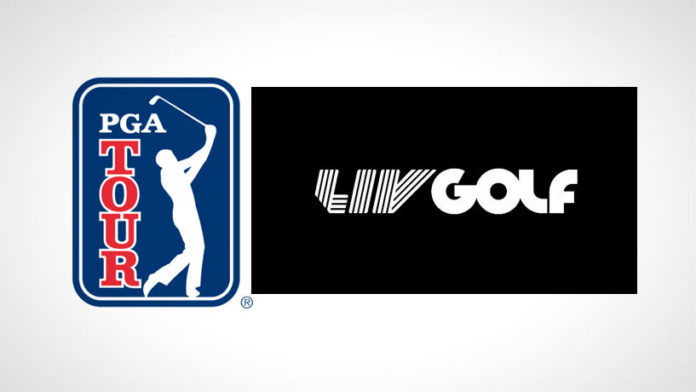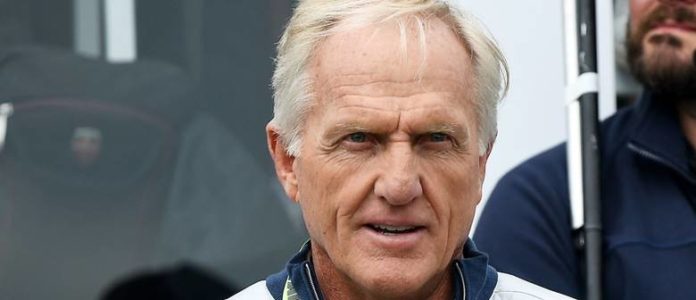
Many people around the world love playing the game of golf and enjoy the numerous benefits the sport provides. However, behind the scenes, golf is a business and a very sizeable business. One division of the sport is professional tournament golf which consists of numerous events /tours involving a variety of groups and golf associations. In the United States and North America, the PGA is the organizer of men’s professional golf tours.
It organizes most of the events / tournaments, also known as the PGA Tour, as well as PGA Tour Champions the Korn Ferry Tour PGA Tour Canada and PGA Tour Latinoamerica.
Originally the “Tournament Players Division”, it adopted the name “PGA Tour” in 1975 and oversees most of the week-to-week tour events fans watch on TV, including The Players Championship and FedEx Cup.
“The Players” and Tour Championship are its flagship events, while the FedEx Cup is the tour’s season-long points system.
The tour began in 1929 and at various times the tournament players attempted to operate independently from the club professionals. With an increase of revenue in the late 1960s due to expanded television coverage, a dispute arose between the touring professionals and the PGA of America on how to distribute the windfall.
The tour players wanted larger purses, where the PGA desired the money to go to the general fund to help grow the game at the local level. Following the final major in July 1968 at the PGA Championship, several leading tour pros voiced their dissatisfaction with the venue and the abundance of club pros in the field.
The increased friction resulted in a new entity, what would eventually become the PGA Tour. Tournament players formed their own organization, American Professional Golfers, Inc. (APG), independent of the PGA of America.
After several months, a compromise was reached: the tour players agreed to abolish the APG and form the PGA “Tournament Players Division”, a fully autonomous division under the supervision of a new 10-member Tournament Policy Board.
The PGA Tour does not run any of the four major championships (Masters, PGA Championship, U.S. Open, The Open), or the Ryder Cup. The PGA of America, not the PGA Tour, runs the PGA Championship and the Senior PGA Championship, and co-organizes the Ryder Cup with Ryder Cup Europe, a company controlled by the PGA European Tour.
Additionally, the PGA Tour is not involved with the women’s golf tours in the U.S., which are mostly controlled by the LPGA.
For over 90 years PGA Tour golf has gone unchallenged and has not faced any serious competition until now.
In 1994, Greg Norman attempted to launch a startup league called the World Golf Tour. The bid flamed out, blocked by the PGA Tour, but the idea never went away. Not in the sport’s consciousness nor in Norman’s.

Twenty-eight years later a new company called LIV Golf Investments announced Greg Norman as its CEO. It was announced an investment of $200 million over 10 years to the Asian Tour, promised to “holistically improve the health of professional golf” and hinted that “this is only the beginning.”
Rumors and proposals for a global challenger to the PGA Tour have been swarming for multiple years, but it’s been tough to know just how seriously to take them.
With the world emerging from a two-three-year pandemic lockdown, Greg Norman the commissioner of the new Saudi-backed pro golf tour is about to upend pro golf tours.
Backing the new LIV tour is the government of Saudi Arabia. Their Public Investment Fund is a sovereign wealth fund considered one of the largest in the world, with assets of more than $500 billion. It invests funds on behalf of the government of Saudi Arabia and has been the subject of controversy due to the country’s poor human rights record.
At the heart of the matter and the main issue causing the most concern is the dangerous evolution in Saudi Arabia’s sportswashing strategy — one marked by aggressive investments and a disregard for established sports institutions. Sportswashing is a term used to describe corrupt or authoritarian regimes who use sport and sports events to whitewash their image internationally. Saudi Arabia wants to launder its less than stellar reputation through sports,. And the quickest way to do that is to spend ungodly amounts of money and hope no one worries too much — or even cares — about where that money comes from.
Show Me the Money! Professional golfers are independent contractors and usually pay their own way or most of the expenses at events. As opposed to some other sports where players get paid no matter the outcome, golfers need to perform in order to be paid. If you don’t play well then there is no cheque to cash at the end of the day.
If you have been around tour players you quickly understand that some players are the nicest people in the world. Arnie for one! Then you have others who are only out for themselves, lack personality or social skills and others might not be the brightest bulb in the pack.
For the LIV Tour to start and give them some immediate validity they needed to contract known players with limited morals and who will take the big bucks from a government with a history of human rights abuses.
No surprise the gambling addict Mickelson who needed the money to get out of debt jumped first then Dustin Johnson and DeChambeau. Can you blame them? They are receiving more money than they could possibly make on the PGA Tour and don’t have to play as many events and grind it out each week.

Let’s compare the prize money this past week for the winners. Charl Schwartzel cashed a $4 million paycheck for the 54-hole LIV event and Rori McIlroy who won the 72-hole RBC Canadian Open took home $1.5 million. Quite a difference in prize money so I am sure the LIV event will be the talk in the US Open locker room and we will have to see if more players will switch tours.
I am sure many players and their families have spent countless hours and debating the pros and cons. Rory McIlory declared: “Any decision you make in your life that’s made purely for money usually doesn’t end up going the right way.”
McIlroy respects their decision but will continue to play on the PGA Tour and has no intention of joining the LIV Golf Series.
“I think my stance on it has been pretty clear from the start. It’s not something that I want to participate in,” said McIlroy at his press conference ahead of last week’s RBC Canadian Open.
“I certainly understand the guys that went and understand what their goals and their ambitions are in their life, and I’m certainly not knocking anyone for going.
“It is their life. It is their decision. They can live it the way they want to, but, for me, I want to play on the PGA Tour against the best players in the world.
So, what happens next? The PGA Tour has suspended LIV players but have not said for how long. Can the two tours co-exist? Doubtful as the LIV Tour is invading the PGA Tour turf and scheduled five events in North American. Will the majors take a stand or change some of the eligibility requirements? We will have to wait and see which direction they go.
This week the USGA confirmed that LIV players are eligible for the U.S. Open. Their statement was sure not to endorse the rogue tour, but said, by their entry standards, those eligible will be permitted to play, for now.
The sport of golf is taking a hit now but everyone must remember the sport is not alone in deals with the Saudi government. The LPGA have played Saudi events, the WWE has worked with the Saudi government for years with the Crown Jewel event, the NBA is playing some exhibition games there next year, and they purchased the Newcastle United soccer club.
LIV may flourish or the Saudi’s may realize their ROI and the negative publicity is not worth it and give up. The players will never be satisfied with any success on the LIV Tour as they would at the PGA. The PGA Tour has traditions but some will not care as they have the money and now have to live with their morals and see how history will judge them.
My prediction is LIV will be short lived and will follow the route similar to other start up leagues like the American Football League and the American Basketball Association who mounted enough of a challenge to the NFL and the NBA that the elder leagues absorbed their upstart competition. In the late 1970s, the NHL swallowed the surviving teams of the World Hockey Association.
Competition is good for business and maybe the LIV Tour will make the PGA Tour better. They have a serious challenge on their hands and the first time they have some competition and will need to tread carefully with their membership. Their competitor has deep pockets but the PGA Tour has the reputation, history and tradition. If this past week’s RBC Canadian Open is an example of a well-run and exciting event, the LIV tour does not stand a chance.











